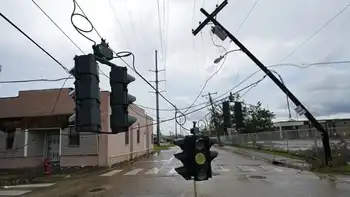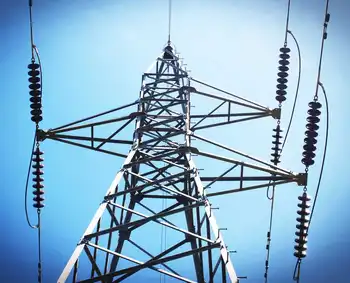GoogleÂ’s next frontier: Renewable Energy
By New York Times
CSA Z463 Electrical Maintenance -
Our customized live online or in‑person group training can be delivered to your staff at your location.

- Live Online
- 6 hours Instructor-led
- Group Training Available
The company, based in Mountain View, Calif., announced that it intended to develop and help stimulate the creation of renewable energy technologies that are cheaper than coal-generated power.
Google said it would spend hundreds of millions of dollars, part of that to hire engineers and energy experts to investigate alternative energies like solar, geothermal and wind power. The effort is aimed at reducing GoogleÂ’s own mounting energy costs to run its vast data centers, while also fighting climate change and helping to reduce the worldÂ’s dependence on fossil fuels.
“We see technologies we think can mature into very capable industries that can generate electricity cheaper than coal,” said Larry Page, a Google founder and president of products, “and we don’t see people talking about that as much as we would like.”
The initiative, which Google is calling RE The company also said that Google.org, the philanthropic for-profit subsidiary that Google seeded in 2004 with three million shares of its stock, would invest in energy start-ups.
Google says its goal is to produce one gigawatt of renewable energy — enough to power the city of San Francisco — more cheaply than coal-generated electricity. The company predicted that this can be accomplished in “years, not decades.”
For some Wall Street analysts, the most relevant question is not whether Google can save the world, but whether the companyÂ’s idealism may ultimately distract it from its core businesses of organizing the worldÂ’s information and selling online ads.
“My first reaction when I read about this was, ‘Is this a joke?’” said Jordan Rohan of RBC Capital Markets. “I’ve written off Google’s competition as a threat to Google’s long-term market share gains. But I haven’t written off Google’s own ability to stretch too far and try to do too much. Ultimately, that is the biggest risk in the Google story.”
Robert Peck of Bear Stearns agreed that “the headlines were a little scary at first” and said investors were initially worried that this was another example of Google “trying to bite off more than they can chew.”
But Google’s stock closed up more than 1 percent Tuesday in a higher market, Mr. Peck said, when investors ”realized this is more of a Google.org initiative and backed off.”
Mr. Page, in an interview, said that failing to investigate new businesses could hurt Google more than any potential distraction. “If you look at companies that don’t do anything new,” he said, “they are guaranteed never to get bigger. They miss a lot of opportunities and they miss the next big things.”
As part of the initiative, executives at Google.org said they are working with two companies that have “promising, scalable energy technologies.” One of these, eSolar, based in Pasadena, Calif., uses thousands of small mirrors to concentrate sunlight and generate steam that powers electric generators. The other, Makani Power of Alameda, Calif., is developing wind turbines that will run on powerful and generally more predictable winds at high altitudes.
In a conference call with reporters, Sergey Brin, GoogleÂ’s other founder and president of technology, said the effort was motivated in part by the companyÂ’s frustrating search for clean, cheap energy alternatives.
“It’s very hard to find options that aren’t coal-based or other dirty technologies,” he said. “We don’t feel good about being in that situation as a company. We feel hypocritical. We want to make investments happen so there will be alternatives for us to use down the road.” Both founders declined to specify what the company now spends on energy.
Idealism is hardly new at Google. In their Letter From the Founders before the company’s 2004 initial public stock offering, Mr. Page and Mr. Brin wrote: “Our goal is to develop services that significantly improve the lives of as many people as possible. In pursuing this goal, we may do things that we believe have a positive impact on the world, even if the near-term financial returns are not obvious.”
Mr. Rohan of RBC Capital Markets said that the returns were not obvious. “The only positive byproduct of this project that would be anything other than environmental,” he said, “is that it might make Google managers and executives even prouder of the fact that they work there, and it may help retain key employees who think their goal is to do good in the world. But I’m really stretching.”
Google is only the latest Fortune 500 company to embrace green technologies. Also, Hewlett-Packard said it would install a one-megawatt solar electric power system at its manufacturing plant in San Diego, and buy 80 gigawatt-hours of wind energy in Ireland next year. H.P. said that together, the agreements would save it around $800,000 in energy costs.











